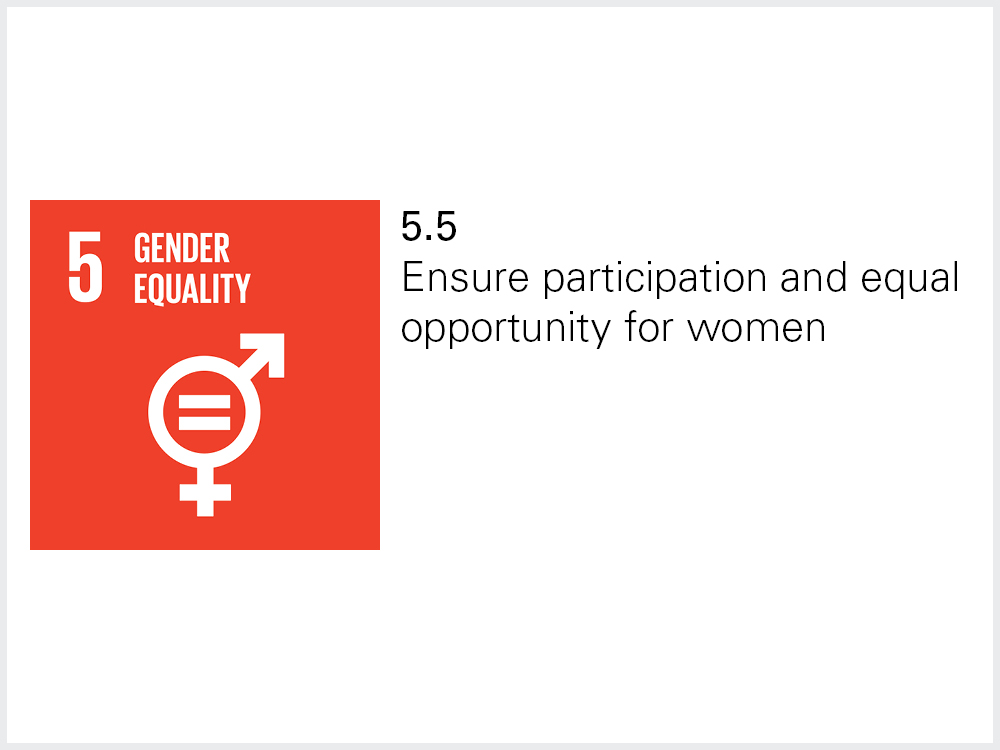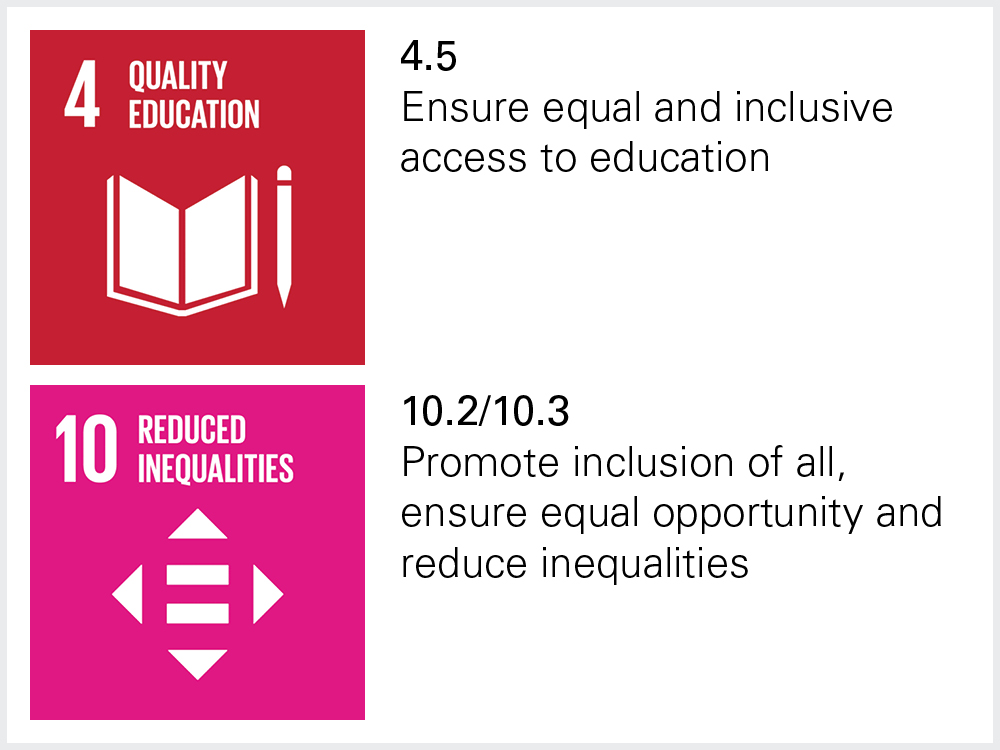Diversity & Inclusion

Since January 2022, the University of Basel has adopted a new Strategic Position on Equal Opportunity, Diversity and Inclusion and an accompanying Action Plan for 2022–2025. In it, the university has formulated seven key objectives that it will particularly endeavor to achieve.
In January 2022, the Strategic Position. Equal Opportunity, Diversity & Inclusion 2022–2030 was published, which formulates seven key objectives that the University of Basel is focused on achieving: “Employing more women,” “adopting a family-friendly approach,” “protecting personal integrity,” “strengthening intercultural skills, “promoting diverse careers,” “facilitating accessible study” and “creating an inclusive university.” The accompanying 2022–2025 Action Plan firms up the strategic position with action and responsibilities.

Over the past 10 years, I have been especially pleased with the openness with which the University has approached the expectations and needs of students with disabilities. The action plan is the logical next step for an even more diverse and inclusive university.
Gaudenz Henzi, Head of Social Services
Equal opportunity
The first objective of the University of Basel “Strategic Position. Equal Opportunity, Diversity & Inclusion 2022-2030” is to employ more women. Since 2019, equal opportunity monitoring figures starting from the year 2014 have been presented annually to the President's Board and the University Council. Altogether, the percentage of women at the professor level has risen from 18% in 2013 to 27% in 2022, which represents an average annual increase of 1%.
At the assistant professor level (tenure track and non-tenure track), gender balance was (nearly) achieved in 2022, with 18 male and 18 female assistant professors without tenure track and 10 female and 13 male tenure-track assistant professors.
The “Basel Mentorship Network for Professors” (BAMNET), which launched in early 2022, provides female assistant professors with mentors of their choice with an aim toward making the qualification process for full professorship quicker and easier to achieve. This mentoring offers targeted support in terms of career development, strategic career planning and networking as well as exchange on the unwritten rules of academia.
Personal integrity
Preventative offerings in the area of personal integrity have consistently been expanded. Since fall semester 2021, the topic has been integrated into the required course “INSIDE I - Practical Insights,” which gives new professors an introduction to the culture, values and strategies of the university. During the Welcome Day new employees are informed about the Personal Integrity Coordination Office and its casework and prevention efforts. Additionally, various classes on this issue are offered each semester for students and employees.
Inclusion: Students Without Barriers – hybrid teaching
With its guidelines for accessible teaching practices, the Students Wthouth Barriers (StoB) service point helps to educate instructors about the specific needs of students with vision or hearing impairments in hybrid instruction. In order to make instruction as accessible as possible, they have developed a handbook and an online course in collaboration with the Educational Technologies team. The associated workshop had five attendees in 2021, which increased to 15 in 2022.
Students Without Barriers celebrated its 10-year anniversary in 2022 with the publication of a report on its development and milestones.
Certificate of Intercultural Competence
The University of Basel views intercultural skills as a key qualification for the global academic world. The strategic objective is to support members of the university at all levels through relevant training opportunities to facilitate appropriate, effective action in an intercultural context. The National and International Cooperation team has therefore created the Certification of International Competence for administrative, laboratory and technical staff to improve intercultural sensitivity and build intercultural communication skills.
Café International
Since fall semester 2018, the Café International format has lent visibility to the topic of “Intercultural Challenges and Resources” at the University of Basel in various ways. Since then, it has welcomed 543 participants to a total of 15 events. This initiative is geared toward facilitating newcomers’ start at the university, supporting their interactions with colleagues from Switzerland and promoting mutual intercultural competence (sensitivity). The offerings are aimed at Master’s and PhD students, postdocs, lecturers, guest researchers and employees of the University of Basel.
Goals & actions
Improve the protection and observance of personal integrity of university members
Sharpen and further develop the prevention concept to protect personal integrity
Personal Integrity Coordination Office
Provide targeted support to economically disadvantaged students
Plan and implement a pilot project to facilitate inclusion from modest socioeconomic circumstances as well as students with a migration background
Diversity & Inclusion
Further expand existing services for students with impairments
Develop the process of compensating for disadvantages in cooperation with faculties at lecturer/subject level: Raise awareness, transparency, skills, resources
Students Without Barriers
Further expand existing services for students with impairments
Enable students with impairments to participate in hybrid teaching through various measures: information for teaching staff, investigation of need for counseling and support, creation and development of support offers, and ensuring the benefits of hybrid teaching can be included in the long term
Students Without Barriers



